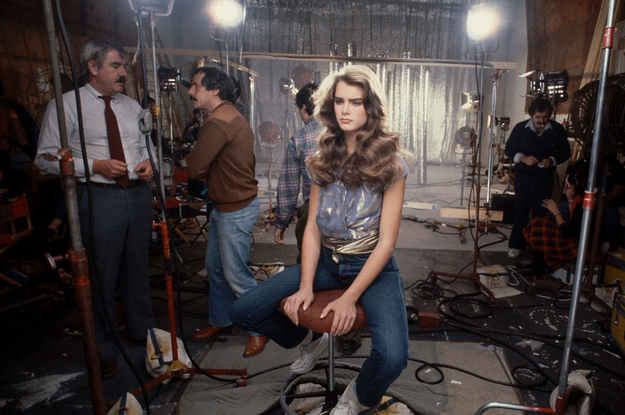[ad_1]
However intercutting clips of the movie with criticism of it doesn’t make it much less sexually charged, and so Fairly Child serves up the identical enchantment as Blue Lagoon as soon as did: providing transgression and distance from the transgression on the identical time. Visually, the documentary revels within the magnificence and eroticism of younger, skinny, bare Shields, however verbally, it skirts the apparent and uncomfortable reality that the clips are sexually arousing. It intercuts clips of guffawing youngsters from 1980 speaking in regards to the film’s enchantment: “I appreciated it as a result of I’ve a energetic creativeness,” smirks one. “It teaches lots of issues,” says one other, euphemistically. Shields herself sidesteps the problem. She says that “Blue Lagoon was one of many first motion pictures that folks let their kids see that needed to do with coming of age, lack of virginity, [and] sexuality in that manner,” however she doesn’t specify in what manner, which is pornographically.
Definitely Shields doesn’t must relive her personal sexualization so explicitly, however the documentary’s self-denial — no, this isn’t erotic — prevents it from probing more difficult questions. Fairly Child addresses how Randal Kleiser, the director of Blue Lagoon, tried to market the film as “a actuality present,” proof of Shields’s real-life sexual awakening and lack of virginity, but it surely doesn’t hyperlink this gross anecdote to a bigger sample of older males asserting possession over Shields’s sexuality. Although Shields does later speak in depth about her expertise with sexual assault, a phase of the documentary which is admirably and sensitively dealt with, elsewhere, she appears decided to placed on face. Recounting an ordeal she endured at age 16, when her mom sued photographer and household pal Garry Gross to stop him from releasing nude pictures he took of Shields when she was 9, she says, moderately, “It was so hurtful to me. … Why put me via that?” It’s a startlingly delicate evaluation of the scenario, but it surely’s revealing of the documentary’s basic mission, which isn’t to guage Shields’s public picture via a feminist lens, however to offer Shields management over her story the place she has so ceaselessly had none.
[ad_2]
Source link





